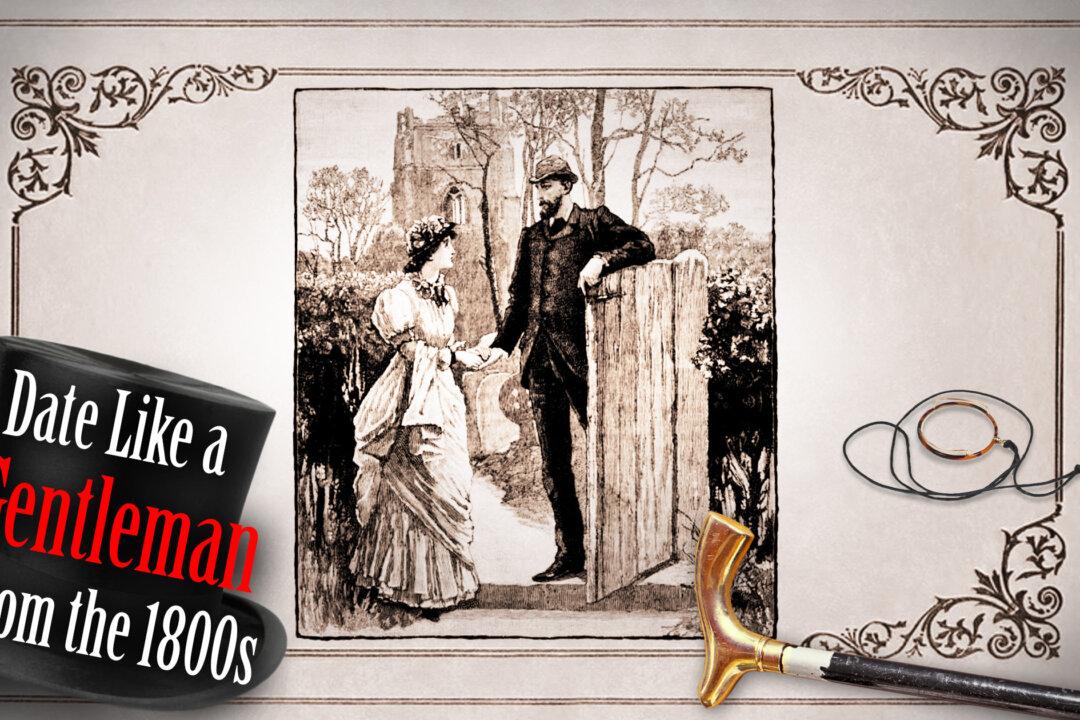THE correct behavior of young men toward young ladies, and of young ladies toward young men, during that portion of their lives when they are respectively paying attention to, and receiving attention from, one another, is a matter which requires consideration in a work of this nature.
A GENTLEMAN'S CONDUCT TOWARD LADIES.
Young people of either sex, who have arrived at mature age, and who are not engaged, have the utmost freedom in their social intercourse in this country, and are at liberty to associate and mingle freely in the same circles with those of the opposite sex. Gentlemen are at liberty to invite their lady friends to concerts, operas, balls, etc., to call upon them at their homes, to ride and drive with them, and make themselves agreeable to all young ladies to whom their company is acceptable. In fact they are at liberty to accept invitations and give them ad libitum. As soon, however, as a young gentleman neglects all others, to devote himself to a single lady, he gives that lady reason to suppose that he is particularly attracted to her, and may give her cause to believe that she is to become engaged to him, without telling her so. A gentleman who does not contemplate matrimony should not pay too exclusive attention to any one lady.A LADY'S CONDUCT TOWARD GENTLEMEN.
A young lady who is not engaged may receive calls and attentions from such unmarried gentlemen as she desires, and may accept invitations to ride, to concerts, theatres, etc. She should use due discretion, however, as to whom she favors by the acceptance of such invitations. A young lady should not allow special attention from anyone to whom she is not specially attracted, because, first, she may do injury to the gentleman in seeming to give his suit encouragement; and, secondly, she may keep away from her those whom she likes better, but who will not approach her under the mistaken idea that her feelings are already interested. A young lady should not encourage the addresses of a gentleman unless she feels that she can return his affections. It is the prerogative of a man to propose, and of a woman to accept or refuse, and a lady of tact and kind heart will exercise her prerogative before her suitor is brought to the humiliation of an offer which must result in a refusal.No well-bred lady will too eagerly receive the attentions of a gentleman, no matter how much she admires him; nor, on the other hand, will she be so reserved as to altogether discourage him. A man may show considerable attention to a lady without becoming a lover; and so a lady may let it be seen that she is not disagreeable to him without discouraging him. She will be able to judge soon from his actions and deportment, as to his motive in paying her his attentions, and will treat him accordingly. A man does not like to be refused when he makes a proposal, and no man of tact will risk a refusal. Neither will a well-bred lady encourage a man to make a proposal, which she must refuse. She should endeavor, in discouraging him as a lover, to retain his friendship. A young man of sensibilities, who can take a hint when it is offered him, need not run the risk of a refusal.






